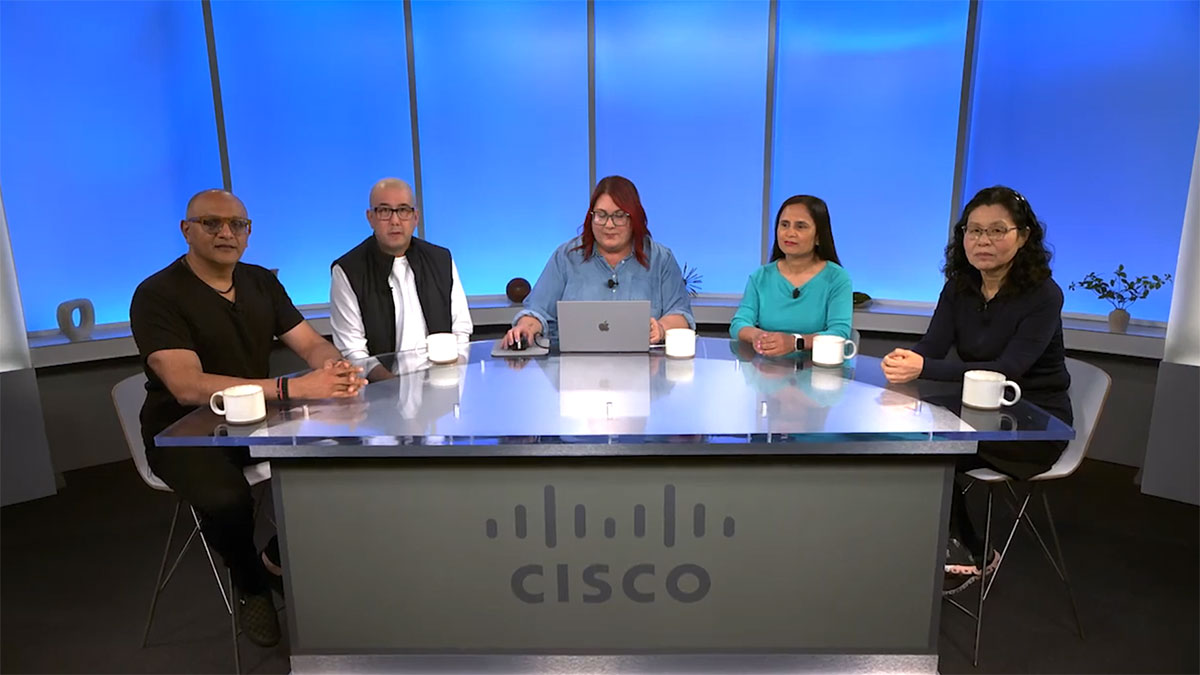SAN FRANCISCO, February 20, 2008 - Joined by mayors and dignitaries from nearly 100 cities worldwide, Cisco® Chairman and Chief Executive Officer John Chambers today called for industry and government to work together to develop technologies that address the world's pressing environmental concerns. Chambers gave the keynote address at the first Connected Urban Development (CUD) Global Conference, hosted by Cisco and the city and county of San Francisco. CUD is a public-private partnership aimed at addressing the unique environmental problems confronted by urban areas, and at developing replicable information and communications technology (ICT) solutions for cities around the world.
"It is our responsibility as global citizens to help address the challenges of climate change. As a technology company, we are approaching this by not only reducing our own company's carbon output, but also by helping our customers and partners use the network as a 'green' platform for sustainable business and government progress. If we are innovative and collaborative in our approach, ICT can dramatically improve how we manage our global environmental footprint and climate concerns," Chambers said.
Studies have shown that ICT can have a large impact on reducing the environmental footprint of cities. According to a recent report by the American Council for an Energy- Efficient Economy, for every extra kilowatt-hour of electricity demanded by ICT, the U.S. economy increases its overall energy savings by a factor of 10. (See: http://aceee.org/press/e081pr.htm)
The CUD Approach
Urban areas are the largest global contributor to energy consumption and climate change. According to U.N. Habitat, the world's 20 mega-cities, each with a population exceeding 10 million, are responsible for 75 percent of the world's energy consumption. And cities everywhere are experiencing considerable increases in energy consumption and facing new problems associated with increasing populations and electricity use.
Urban, business, research, academic and civic leaders gathered today to discuss the specific environmental challenges they face, and to examine how technology can dramatically help them address environmental, transportation, energy, ICT, building and workplace issues in urban areas. CUD's vision is for cities to use innovative ICT solutions to improve energy efficiency; reduce carbon emissions from cars, trains, buses, and other forms of transportation; transform urban design, city management and operational practices; and change the way citizens work and interact with each other.
Connected Urban Development was launched in September 2006 as part of Cisco's commitment to the Clinton Global Initiative, a program initiated by the William J. Clinton Foundation to solve problems that affect the quality of human life. The three founding CUD cities are San Francisco; Amsterdam, Netherlands; and Seoul, South Korea. All three have already installed, or plan to install, a next-generation broadband infrastructure, contend with significant traffic congestion, and are led by mayors committed to green initiatives.
"The Connected Urban Development concept complements San Francisco's Climate Action Plan and will help make our carbon-reduction goals a reality. We are proud to be a part of this important effort," said San Francisco Mayor Gavin Newsom. "By using ICT and working with innovative partners such as Cisco, San Francisco can lead the way in creating an urban blueprint that is both environmentally friendly and economically sustainable."
Unique Solutions
The three cities have worked over the past 18 months with the Internet Business Solutions Group (IBSG), the global strategic consulting arm of Cisco, to create green ICT solutions for the specific problems they face. Cisco IBSG will collaborate with the cities on the development of best practices in the areas of smart transportation, energy management and environmentally friendly, alternative work arrangements. Highlights include:
- "The Connected Bus," is a landmark prototype that was developed by Cisco and the San Francisco Municipal Transportation Authority (SFMTA) to demonstrate an innovative way to make public transportation more green. The hybrid bus has a mobile hot spot that allows citizens to work while they ride; a Global Positioning System gives commuters updated status of bus routes and connections; LED displays provide information on emissions saved through public transit; and an automated system reduces the environmental impact of the bus through better maintenance. If deployed broadly throughout transit systems, the Connected Bus can significantly reduce carbon emissions in cities around the world.
- "Personal Travel Assistant (PTA)," is a pioneering service being developed by Cisco with input from the Massachusetts Institute of Technology (MIT). Currently being considered by the city of Seoul for pilot testing, PTA improves the transit experience within urban environments by empowering citizens to make more informed decisions on day-to-day transportation options based on schedule, financial and environmental implications. Accessible from any Web-based interface such as a mobile phone, PTA is the first service of its kind that provides green route options, integrates with other communication needs such as calendaring, and enables city agencies to predict and manage evolving citizen transportation needs more effectively.
- "Smart Work Centers," an approach developed by Cisco and embraced by the city of Amsterdam, enables local residents to work in remote stations without having to travel into the heart of the city. The Smart Work Center concept is based on a combination of technology and services that deliver a true connected neighborhood experience: the innovative use of convergent video-voice-data technology solutions; the availability of onsite services such as child care centers, dining and banking; open public and exposition spaces; and flexible desk seating and meeting rooms.
Scaling Best Practices
Cisco also announced today that it will be working with four additional cities: Birmingham, England; Hamburg, Germany; Lisbon, Portugal; and, Madrid, Spain. Each of these cities will implement a particular best practice complementary to the ones developed by the CUD founding cities. Cisco will work in concert with the cities to tailor solutions to meet their environmental and urban needs.
"Cisco is proud of the progress made by each of the founding CUD cities over the last year, and we are excited to welcome four new cities into the partnership," said Nicola Villa, global director of Connected Urban Development for Cisco IBSG. "The CUD approach identifies how cities can deploy scalable, tangible solutions to increase operational efficiencies and optimize resources in a manner that helps reduce carbon emissions and improve energy efficiency. We look forward to replicating the results achieved by the cities in other urban areas throughout the world."
The next gathering of CUD cities and their colleagues will take place in Amsterdam, Netherlands, on Sept. 23-24, 2008.




